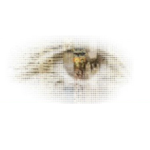The workshop series is open to faculty, staff, researchers and postgraduate students and may be attended as either ‘a la carte’ (where participants have a particular interest in a single or multiple sessions), or as a 5 ECTS module to be applied to the taught course requirements in a structured PhD. Assessment details are available here.
All four of the workshops scheduled for the Hilary Term 2021 / Semester 2 2021 will take place online. Participants will be forwarded a link upon completion of the online registration form. The registration form is available at the bottom of the page.
Defining (the) Digital Humanities
A workshop by Dr. Michelle Doran — Trinity College Dublin Centre for Digital Humanities
Date: Wednesday, February 24
Time: 13:00-16:00
REGISTRATION FOR THIS WORKSHOP IS NOW CLOSED
What constitutes digital humanities (or what constitutes the digital humanities) is a question to which the multiplicity of answers now comprises a genre. The answer to this question largely depends on how we define the relationships between digital humanities and the traditional humanities disciplines, as well as the emerging humanities disciplines and the natural sciences (including computational science). Exploratory rather than prescriptive in style, this workshop will ask participants to define digital humanities as it relates to their own scholarly identities, disciplines, sources and research methodologies. Participants will also be introduced to the landscape of digital humanities at Trinity College Dublin.
Interdisciplinary Critical Feminist Digital Scholarship
A workshop by Dr. Pat Treusch Postdoctoral Fellow at the Interdisciplinary Berlin Cooperative Graduate Program “DiGiTal — Digitalization: Design and Transformation” and Visiting Researcher at The Trinity Long Room Hub Arts & Humanities Research Institute.
Date: Wednesday, March 3
Time: 13:00-16:00
REGISTRATION FOR THIS WORKSHOP IS NOW CLOSED
This workshop will explore how Digital Humanities (DH) and selected perspectives of Feminist Science and Technology Studies (FSTS) can be brought into a productive relationship. This entails to discuss the need as well as the availability of critical analytical tools adjusted to processes of a digitalization, datafication and algorithmization of humanities. Arguing that the latter cannot be reduced to the claim that digital scholarship is paradigmatic for the neoliberal, entrepreneurial university with its instrumentalist forms of education, the workshop will highlight the chances of what David Berry calls „digital intellect“ (2011).
The goal of the workshop is to bring together concepts of critical DH, informed by FSTS, in order to develop an account of digital humanities as positioned between technology and culture, and therefore an ideal field of reflecting on how recent computer cultures are impacting not only societies, economies and politics, but also knowledge production and practices of knowing. At the core of the position of a digital intellect then is to raise questions such as: How to re-think both knowledge cultures and the knower of digital humanities in terms of a network of distributed cognition based on large sets of data and the use of code? And: How to become accountable for processes of in- and exclusion as well as the (re-)production of stereotypes and bias, that are, existing power relations through developing and engaging in certain networks of distributed cognition and data practices over others? The workshop will enable participants to develop a set of reflective tools geared towards individual research projects.
Network Data Analysis & Visualisation via Gephi
A workshop by Maedhbh Nic Lochlainn — Geography PhD. Student, Trinity College Dublin
Date: Wednesday, March 10
Time: 13:00-16:00
REGISTRATION FOR THIS WORKSHOP IS NOW CLOSED
This workshop is designed to present the general theoretical framework behind network analysis and its applications within the Humanities. The workshop will provide a practical introduction to carrying out network analysis – we will work with datasets to a) use Gephi to create network graphs, and b) spatially map our network graphs using Gephi and Google Maps.
Networks have been a key framework and concept for mapping and understanding reality and knowledge. We are said to live in a ‘networked’ age, with examples of Social Networking and network analysis surrounding us (e.g. social media, supply chain networks). Participants will be given an overview of Social Network Analysis (SNA) as a method and introduced to examples of how SNA has been applied in research.
As to the practical section, we will work with two pre-prepared datasets that demonstrate how SNA can be adapted and used. No previous technical skills are required. Participants will work with Gephi (free to download here) and we’ll use Gephi to make simple maps that can be exported for use in Geographic Information Systems/GIS and Google Maps. For the manipulation of datasets, a spreadsheet software such as Microsoft Excel or equivalent will be employed. Participants are requested to download and install Gephi beforehand.
Introduction to Python for Humanities Research
A workshop by Prof. Salvador Ros Munoz — Horizon 2020 funded Poetry Standardization and Linked Open Data Project.
Date: Wednesday, March 24
Time: 13:00-16:00
REGISTRATION FOR THIS WORKSHOP IS NOW CLOSED
Python is an open-source, general-purpose programming language that is suitable for a wide range of quantitative analysis tasks in the Humanities including analysing data, creating visualisations, scraping the internet, and the distant reading of texts. This workshop introduces the theories, practices, and methods for quantitative analysis in the Humanities using Python. Participants will work through a use case to build familiarity with the language’s syntax and best practices. Participants will also get insight into the use of Jupyter notebooks for research. This workshop is designed for participants who have no prior programming experience.
